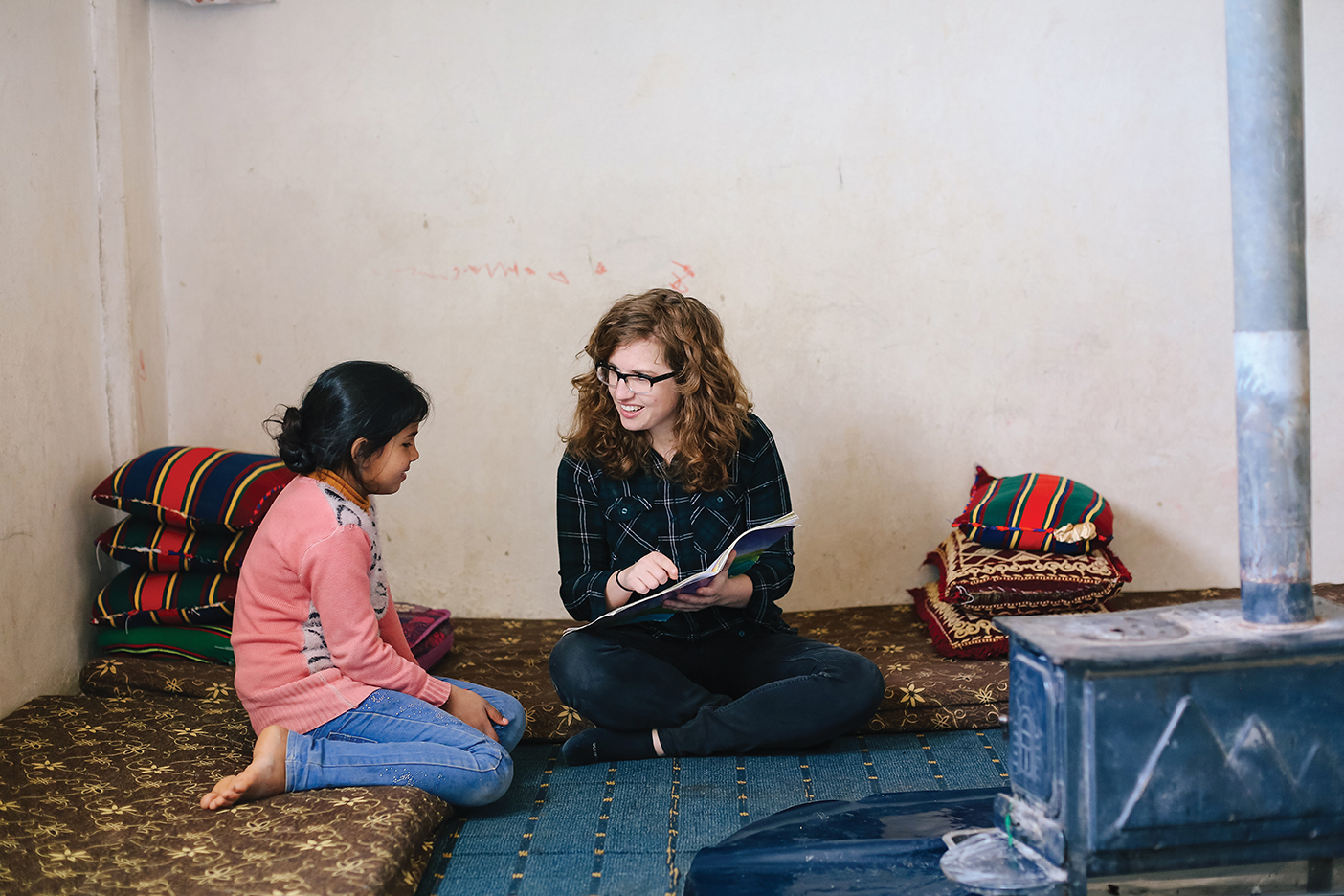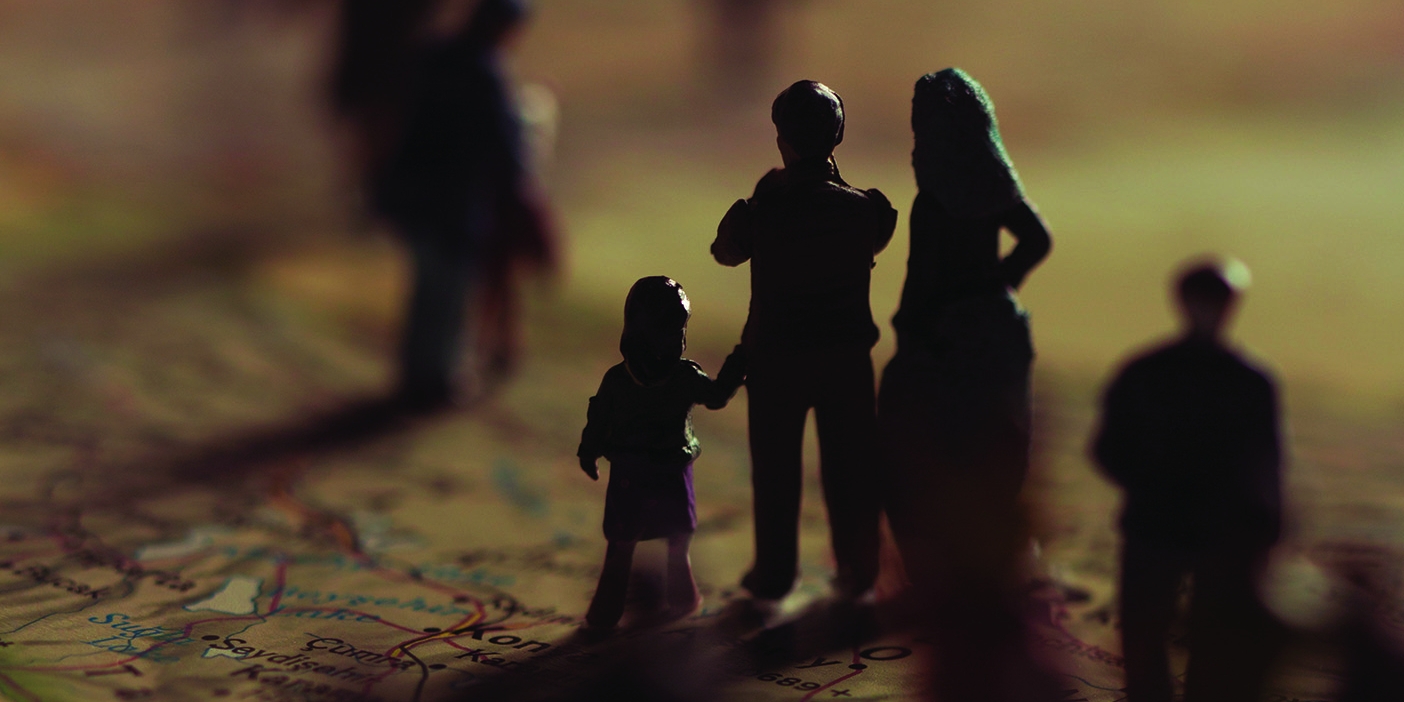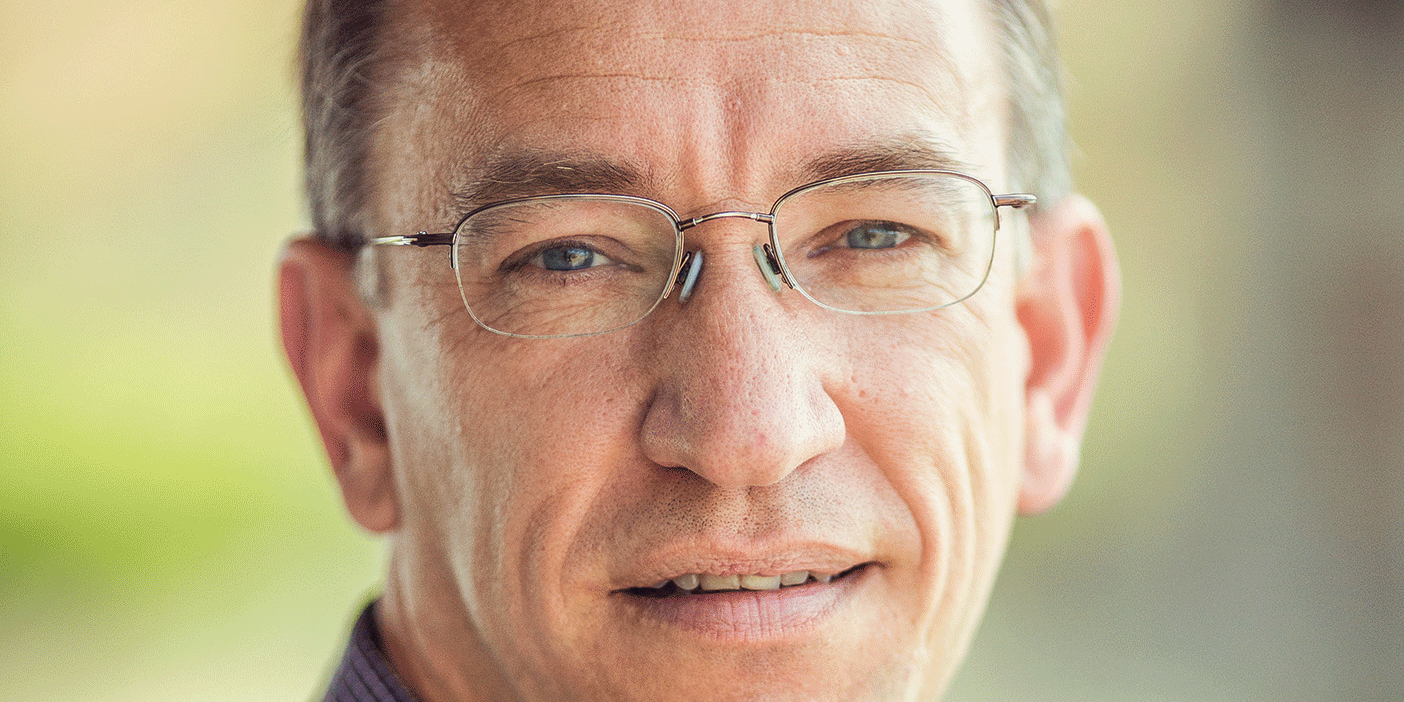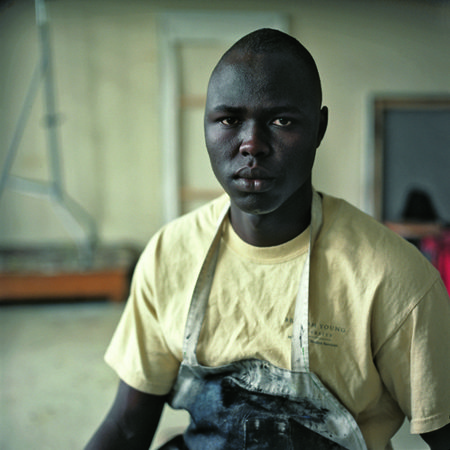
Lifting Hands International (LHI) founder and director Hayley Smith (BA ’07) has developed stateside and international programs mobilizing thousands of volunteers to meet the wide-ranging needs of refugees. LHI has a full-time team in an Iraqi Yazidi camp in northern Greece; furnishes homes for refugees in Arizona; fills shipping containers with clothing; provides food aid; runs a women’s center; and teaches languages, music, and trauma-informed yoga to refugees.
“A lot can come out of difficulty. While at BYU I had an eating disorder, and I went to the Center for Change in Orem, Utah, as an inpatient. When I got out, I started slipping back into the disorder. I realized, ‘I can’t do this. I will die if I continue down this road.’ So one day, I thought, ‘I’m going to practice my positive coping mechanisms. I’m not going to give in to this darkness.’ I went to the public library in Provo. I said, ‘I’m going to learn an alphabet—something cool that doesn’t look like English.’ So I went to the language section and picked out a book. It happened to be an Arabic language book. I opened it, and it was like falling in love. I then took Arabic 101 and loved it. It helped me heal so much; it gave me something to focus on.
“Less than a year later I was in Morocco doing a study abroad. Then I did graduate work in London. I became an Arabic teacher in Boston. I knew in my heart that this was all leading to something. I really thought it was leading to teaching. When that didn’t work out, I thought, ‘Whoa! What’s this all about?’ And then it led to this. It’s like a calling, and I’m really pleased Heavenly Father helped me find it.”
“I was not thinking about starting a nonprofit when I went to Greece for two weeks over Christmas of 2015. I saw that there were tons of donations for refugees—not labeled or sorted and mostly junk. Some refugees’ boats had overturned in the ocean. People were freezing. There was nothing for the men at all. They had to wear wet clothes. So when I got home, I just felt this spiritual compulsion—like, ‘Do it; start a nonprofit.’ I thought, ‘My gosh, I’m not business savvy. I speak Arabic, I love people, and that’s it. I don’t know how to run a business.’ But I felt like I was being pushed from behind. I incorporated [Lifting Hands International] in January 2016.”
“Once refugees leave their homes, a different hell starts. They’re not being bombed anymore, but there’s sex trafficking, human smuggling, and kidnapping; there’s bedbugs, fleas, lice, and illness; there’s bureaucracy and massive delays. Refugees are being attacked by fascists. If they make it here, they’re obviously very grateful, but it’s much harder than they think.”
“I started meeting refugee families here in Phoenix. A lot of people think the refugees are taken care of. Not so. It’s really rough. Refugees are coming here and getting lost; they’re falling between the cracks. We’ve organized a program where we furnish incoming refugee apartments. We have set up more than 100 apartments in the past year. We have had over 4,000 volunteers in our Phoenix program alone.”
“What makes these refugees so resilient? I’ve asked them this question many times. Every single family is different, but the common theme is hope. Just hope. Hope to get cancer treatment in their new country. Hope to see a son who made it to Germany before the borders closed. Hope to see their family in Syria again. Hope that their family will survive the war. Hope is the only thing that keeps them going.”
“I feel very attached to [the refugees]. I love them. I feel protective of them. I’m surprised at what lengths I will go to to make sure that they’re protected and getting the services they deserve. It’s a feeling of protectiveness and nurturing I didn’t know I was capable of.”












